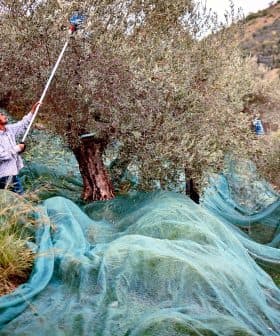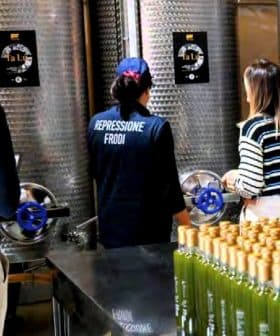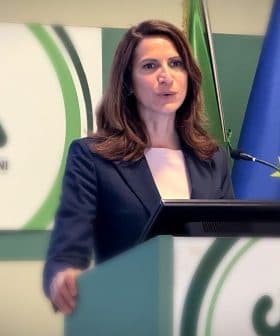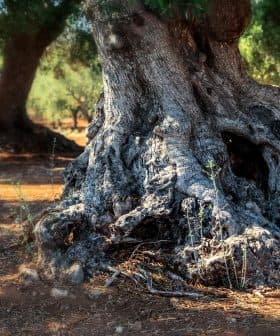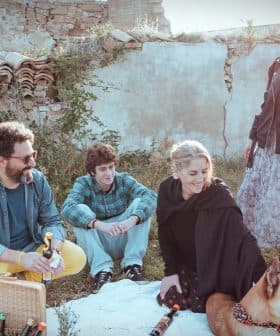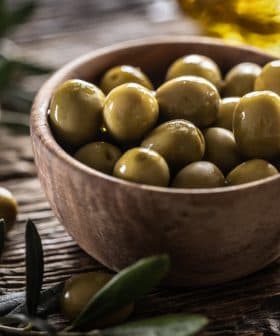Program in Puglia Fosters Healthy Food Choices, Sustainability
Through hands-on instruction and visits to local farms, Cinzia Rascazzo helps people live healtheir lives.
 Cinzia Rascazzo
Cinzia RascazzoCinzia Rascazzo, a former finance professional, founded Stile Mediterraneo Food and Lifestyle Academy in Italy to promote the Mediterranean Diet and educate people on food quality. Rascazzo emphasizes the importance of choosing quality ingredients, using senses over marketing, and understanding the cultivation process to improve health and well-being.
With a background in finance, Cinzia Rascazzo didn’t have to do much math to realize that her fast-paced U.S. corporate job was not conducive to a healthy lifestyle. The chasm between her stressful position and her Southern Italian roots became so significant she knew she had to make a change. Yet, this epiphany was not just for her.
“I wanted to help other people. I wanted to run a business that was sustainable and go back to Italy to promote my country and its small producers,” said Rascazzo.
Eleven years ago, Rascazzo, who has an MBA from Harvard, founded Stile Mediterraneo Food and Lifestyle Academy based in Puglia, Italy, which helps people learn about food, with an emphasis on the Mediterranean Diet.
European travel authority Rick Steves once said, “If you like Italy as far south as Rome, go further south. It gets better.” Rascazzo knows just how good it gets when it comes to what is served on Southern Italian plates. “I was lucky because being from Southern Italy we take all these things (fresh food) for granted. I was raised in a place where food has always been very important. Specifically, homemade foods using very high-quality ingredients and following the Mediterranean Diet,” she said.
Rascazzo’s support for the Mediterranean Diet is timely given research indicating what many people consume is anything but quality. A report in the September Journal of the American Medical Association shows that U.S. adults still make low-quality carbs and saturated fats a high percentage of their diets. But Americans are not alone at the nutrient-deficient table. Recent global metrics highlight the potential impact of a suboptimal diet on non-communicable disease mortality.
Using medical science to document the benefits of the Mediterranean Diet, Rascazzo teaches Academy attendees why this way of eating has persisted. “My generation, we were all brought up by our grandmothers, so almost all women know the ancient way of cooking that has been handed down,” she said. In the one-week program, people learn how to choose quality ingredients. “When they leave, I think they’re impressed with the fact that what we teach is simple, so these are lessons and ingredients they can replicate at home. I think the main thing is that they learn the importance of using their senses instead of relying on marketing,” said Rascazzo.
An olive oil sommelier, Rascazzo recounted an email from an Academy participant upon returning home. “She told me she had to throw away her olive oil because she now understood that they can tell you anything on the label, but your nose and palate can tell you more,” Rascazzo said.
The value of real food, instead of supplements is another element of Rascazzo’s instruction. “Imagine going to dinner and sharing a plate of (vitamin) pills!” she said.
Similar to the nutritional void found on a plate of tablets, Rascazzo reminds people that when they buy food without knowing its cultivation process, they might be short-changing their health.
To emphasize that point, in 2014 Rascazzo established Artisans of Taste (AoT). Her aim was to organize educational trips to small farms to show people how sustainable food is produced so they can look for it at home. “It’s about how these items are produced that really matters,” she stated.
Rascazzo takes AoT participants to farms she has researched and visited in Italy, France, and Spain. “I focus on biodynamic farming methods because that means they respect the soil. The concept is about making the roots of the plants very strong so they can defend themselves and don’t require pesticides. So certainly, organic is better, but it’s not enough.”
According to Rascazzo, the Mediterranean Diet is one of the most democratic ways of eating. “My grandparents were not eating meat every day. They were eating pasta, legumes, vegetables, but meat was really once a month because they were not wealthy. I think the message is that even people who don’t have a high budget can afford to follow the Mediterranean Diet.”
- Stile Mediterraneo Food & Lifestyle & Academy of Taste
- Trends in Dietary Quality Among US Adults
- Health effects of dietary risks in 195 countries, 1990 – 2017


